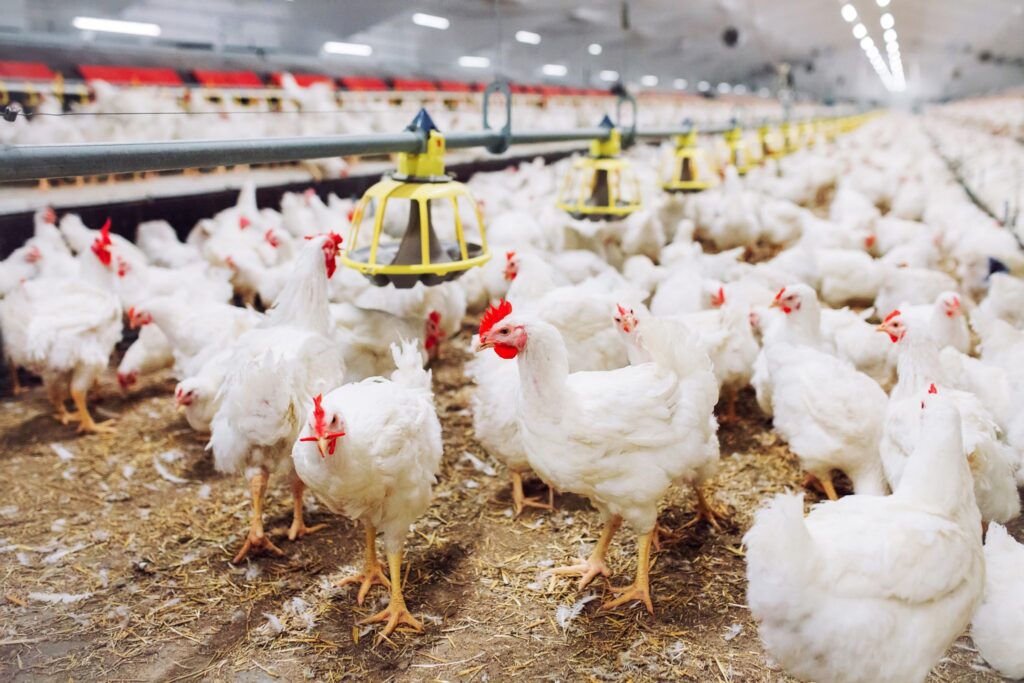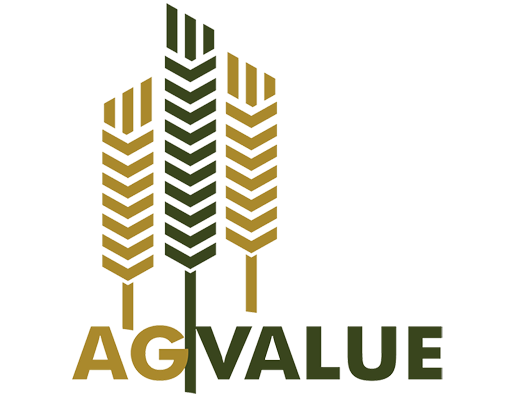
- AgValue Consulting
- June 2, 2024
- 12:01 pm
- 6 minutes
At AgValue Consulting, we understand the critical importance of biosecurity strategies for poultry farms. Disease outbreaks can devastate a farm’s productivity and profitability, making it essential for farmers to prioritize biosecurity measures. As a leading authority in the poultry farm consulting field, we know that implementing key biosecurity strategies is vital for protecting your flock and ensuring the success of your operation.
To safeguard your poultry farm against disease, it’s crucial to follow best practices in biosecurity. By understanding how diseases are introduced and spread, maintaining strict sanitation practices, implementing proper vaccination programs, controlling visitor access, and monitoring your flock’s health daily, you can significantly reduce the risk of disease outbreaks.
AgValue Consulting is here to guide you through each step, helping you strengthen your farm’s biosecurity protocols and ultimately improve your farm’s overall health and performance. Stick with us, and together we’ll ensure your poultry farm is well-equipped to thrive in the face of disease challenges.
Key Takeaways
- Implement strong farm sanitation practices, ensuring cleanliness of poultry houses and equipment.
- Establish a proper vaccination program, with regular schedules and correct administration techniques.
- Control visitor access to the farm, requiring protective clothing and enforcing decontamination protocols.
- Regularly monitor poultry health, maintain detailed records, and promptly report any signs of disease.
- Understand and manage disease entry pathways, as part of a continuous biosecurity process.
Understanding Biosecurity Basics
To ensure the safety of your poultry farm, it’s crucial to grasp the fundamentals of biosecurity and its significance in preventing disease outbreaks. Biosecurity isn’t just a trendy term; it’s a thorough approach to shield your birds from harmful biological agents. It involves implementing measures that prevent the introduction and spread of disease-causing organisms on your farm.
Biosecurity isn’t a one-time occurrence; it’s a continuous process that requires your full attention. It’s all about being proactive – don’t wait for a disease outbreak to occur, take steps to prevent it. This entails understanding the various pathways through which diseases can enter your farm. It could be through contaminated feed, water, equipment, or even individuals visiting your farm.
Effective biosecurity measures aren’t intricate or costly. Simple actions like limiting visitors, cleaning and disinfecting equipment, properly disposing of deceased birds can significantly contribute to keeping your birds healthy.
Implementing Farm Sanitation Practices
Implementing farm sanitation practices is a key step in strengthening your farm’s biosecurity measures. Cleanliness isn’t just about appearances; it directly impacts the health of your poultry. So, let’s get down to the nitty-gritty of farm sanitation.
First, you’ve got to clean the poultry houses thoroughly. This means removing all litter and manure, as well as washing and disinfecting the surfaces. Don’t forget to pay attention to the feeders, drinkers, and other equipment. They can harbor pathogens that could harm your birds.
Next, control the pests. Rodents, flies, and other pests can carry diseases into your poultry houses. Use traps, baits, and other appropriate methods to keep them away.
Lastly, manage the waste properly. Manure and litter can be a source of infection if not handled correctly. They should be composted or disposed of safely.
Implementing Proper Vaccination Programs
After getting your farm sanitation in check, it’s time to focus on another major aspect of biosecurity – setting up a proper vaccination program for your poultry. Vaccinating your birds is a proactive approach to disease control, helping to boost your flock’s immunity against a variety of illnesses.
First, you’ll need to understand the specific diseases that pose a threat to your poultry. Research or seek advice from a local veterinarian to identify these. Then, source vaccines that are appropriate and effective against these diseases. Remember, not all vaccines are created equal. Some may offer broader protection, while others might be more specific.
Next, establish a regular vaccination schedule. Timing is critical; if you’re too late, your birds might already be infected. If you’re too early, the vaccines may not work as effectively. Depending on the vaccine, you might need to administer it via injection, oral drops, or through the bird’s food or water.
Training is important too. Ensure you or your staff know how to correctly administer the vaccines. Improper handling or administration can render them ineffective or even harm your birds.
Controlling Visitor Access
In addition to vaccinations, it’s essential you’re also mindful of visitor access to your poultry farm to prevent disease introduction and spread. Controlling visitor access doesn’t just mean limiting the number of visitors, but also involves implementing specific protocols for those who do visit.
The first step in your visitor control strategy should be to clearly define your farm’s boundaries. Make sure everyone knows where they’re allowed to go and where they’re not. Signage can be a helpful tool in this.
Additionally, it’s important to:
- Establish a check-in process for visitors. This should include recording their contact information and their recent poultry exposure.
- Require visitors to wear protective clothing and footwear, which you provide.
- Implement a decontamination protocol for any equipment brought onto the farm.
- Restrict visitor access to areas where birds are housed.
Regular Health Monitoring and Reporting
Beyond controlling visitor access, it’s equally important to keep a close eye on the health of your birds through regular monitoring and reporting. It’s critical that you closely observe your birds daily for any signs of sickness or distress. Look out for changes in their behavior, eating habits, or physical appearance. Any unusual symptoms could indicate a health problem that needs immediate attention.
You should also invest in routine veterinary checks. A professional vet can conduct thorough examinations, vaccinations, and disease screenings. They’ll provide expert advice on disease prevention and maintaining peak health. Don’t overlook the importance of maintaining accurate and detailed records of these checks and any treatment administered. This information can help identify patterns, predict potential outbreaks, and guide future decisions on health management.
In addition, it’s crucial to report any suspicious signs of disease to your local animal health authorities. Timely reporting can help prevent the spread of diseases to other farms, protecting the overall poultry industry. Remember, biosecurity isn’t just about protecting your own farm; it’s about safeguarding the health of poultry farms everywhere. So, stay vigilant, stay informed, and most importantly, stay proactive in your poultry farm’s health monitoring and reporting.
Frequently Asked Questions
What Are the Potential Legal Implications of Not Adhering to Biosecurity Strategies on a Poultry Farm?
If you don’t adhere to certain strategies, you could face legal implications like fines, penalties, or even closure. It’s important to follow regulations to avoid harming public health and the environment.
How Can Biosecurity Strategies Be Communicated Effectively to All Farm Employees?
To effectively communicate strategies to all employees, you’d start by establishing regular training sessions. Use clear, simple language and visual aids. Reinforce the message through signage and regular reminders. Always be open for questions and clarification.
How Does the Implementation of Biosecurity Strategies Impact the Overall Costs of Running a Poultry Farm?
Implementing these strategies might up your initial costs, but they’ll save you money in the long run. You’ll reduce disease outbreaks, improving bird health and productivity, which ultimately reduces your overall operational expenses.
What Are Some Common Challenges Faced by Poultry Farms in Maintaining Biosecurity and How Can These Be Overcome?
You’ll face challenges like disease spread, and ineffective sanitation practices. Tackle these by implementing strict hygiene protocols, quarantine measures for sick birds, and regular staff training on biosecurity measures. Remember, prevention’s always better than cure.
Are There Any Specific Biosecurity Precautions Needed for Poultry Farms Located in Areas Prone to Certain Diseases or Pests?
Yes, if your farm’s in an area prone to certain diseases or pests, you’ll need to implement specific biosecurity measures. These may include targeted vaccinations, pest control, and stricter quarantine and decontamination procedures.
Conclusion
In conclusion, with a solid grasp of biosecurity fundamentals, you can effectively protect your poultry farm. It’s crucial not to overlook the significance of rigorous sanitation protocols, well-planned vaccination schedules, visitor access regulation, and consistent health monitoring.
The responsibility lies in your hands to maintain these essential practices diligently. By staying alert and adhering to these strategies, you can ensure a conducive and healthy environment for your poultry operation.
For any agricultural appraisal needs, feel free to reach out to AgValue Consulting at 229-499-4534. Remember to promptly report any health concerns and uphold stringent biosecurity measures for the continued success of your farm.
